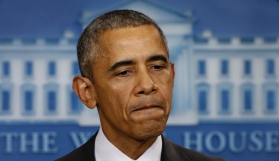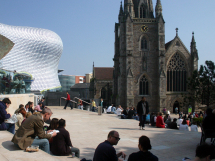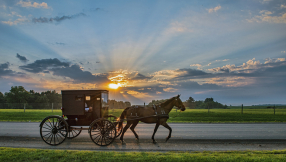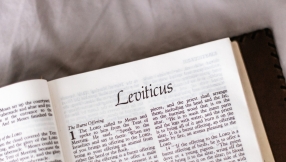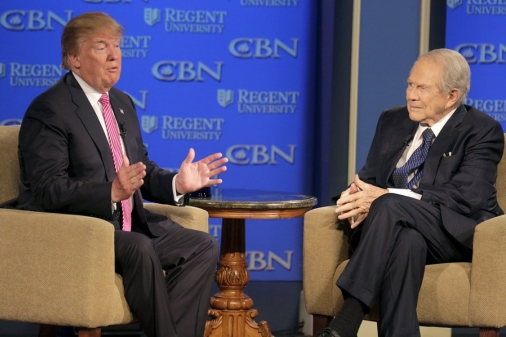
We haven't even hit Peak Trump yet. That will come when he, as now looks almost inevitable, officially secures the Republican nomination for President. Already though, my Twitter, my Facebook and many real life conversations are dominated by one question. How did it come to this? There are as many explanations as there are commentators, but it's now obvious Trump is winning with people who self-identify as 'evangelical' Christians.
Significant voices in the evangelical world have raised their heads above the parapet to denounce Trump this week. Veteran Republican Peter Wehner took to the pages of the New York Times to rail against his fellow evangelicals' support for Trump, "Set aside the fact that Mr Trump is a compulsive and unrepentant liar," he said. "That he has demonstrated no ability for statecraft or the actual administration of government and has demonstrated much incompetence at business to boot.... the fact that Mr Trump has been more erratic, unprincipled and proudly ignorant when it comes to public policy than perhaps any major presidential candidate in American history. What stuns me is how my fellow evangelicals can rally behind a man whose words and actions are so at odds with the central teachings of our faith."
This theme was taken up by a bona fide evangelical heavyweight Russell Moore in the Washington Post. "The word 'evangelical' has become almost meaningless this year, and in many ways the word itself is at the moment subverting the gospel of Jesus Christ." Strong stuff.
Many of the charges laid at Trump's door make him clearly unsuitable to a number of evangelical leaders – yet he's winning in states where the evangelical vote is strongest.
In the midst of one of the most tumultuous periods in American political history for generations, we find ourselves in a fight for the soul of evangelicalism. Is it already too late to save the word 'evangelical' from the viscious political circus it is now entangled in?
In the minds of pollsters, journalists and commentators, "evangelical" is a label for another sub group of the American electorate. Yet as a word and a concept it goes back much further than that.
'Evangelion' is the Greek word for 'good news.' It comes, of course, from the same root as 'evangelist' (which is why some secular publications repeatedly confuse the word 'evangelist' with 'evangelical').
On a simple level evangelicals are those who believe in the good news of Jesus. However over the last 300 years or so, the word has been used more specifically.

Evangelicalism began in the 18<sup>th and 19<sup>th Centuries. The Methodist revival in England led onto a series of similar events in the USA – know as the Great Awakenings. Evangelicals were from various denominations, but shared a high view of scripture, an emphasis on the importance of personal devotion, the atoning work of Jesus on the cross and an inclination towards social action. They were defined in opposition to nomial Christians, or Roman Catholics who understood faith and salvation differently.
Evangelicals were at the heart of the abolition of slavery in the British Empire and in the USA. They were an established force in many Protestant denominations and founded their own churches. As the 20th Century progressed, they were determined to retain their heritage of public engagement. However, this left them open to the risk of being hijacked for a political cause – which could then go onto define the movement.
As recently as the 1970s, half of white evangelicals voted for the Democratic Presidential candidate – Jimmy Carter – who was himself an evangelical. By 2004, four out of five evangelicals voted for the Republican candidate – George W Bush. What happend during this period to mean that to be an evangelical almost automatically meant being a conservative Republican? There were three key fights.
First was the battle to overturn the legalisation of abortion. Historian Randall Balmer claims this wasn't a major concern for evangelicals (unlike Catholics) until conservative political activist Paul Weyrich decided he needed to recruit them to the Republican cause.
The next cause of evangelicals' recruitment to the Republican side was oppostion to the Equal Rights Amendment. Again, led by a conservative activist (in this case Phyllis Schlafly) evangelical women were corralled into opposing the ERA which was supposed to ensure equal treatment of women and men.
The final key fight was the battle over tax exempt status for Christian educational institutions which still practised segregation – especially Bob Jones University.
During the course of the 1970s and early 80s, the evangelical movement had swung behind the Republican Party because of abortion, the Equal Rights Amendment and segregation in schools (I discuss this in more detail in my 2013 Theos report Is there a 'Religious Right' emerging in Britain?)
So, when pollsters suggest that 'evangelical' is a component part of the Republican base, they're certainly not wrong. That's not the whole story, though. First, 'evangelical' as a self-identified label is too vague. As Russell Moore argues of those 'evangelicals' supporting Trump, "Many of those who tell pollsters they are 'evangelical' may well be drunk right now, and haven't been into a church since someone invited them to Vacation Bible School sometime back when Seinfeld was in first-run episodes."
It's interesting to note that Barna polling is now categorising 'evangelicals' and 'born again' voters separately. While this is a blunt measure, it at least shows some are beginning to recognise the point Moore hints at. Just because someone says they're 'evangelical' doesn't mean they are, according to any sensible definition of the word.
What does being an evangelical mean in the 21<sup>st Century?
The best place to start is with David Bebbington's 'Quadrilateral'. The historian famously came up with four distinctive qualities that make an evangelical:
1) Biblicism: a high regard for the Bible
2) Crucicentrism: a focus on the atonement of Christ through the cross
3) Conversionism: a commitment to proclaiming the gospel
4) Activism: a belief that the gospel should change one's life and the world
Although Bebbington's Quadrilateral has been challenged and refined since it was first proposed in the 1980s, it remains a good working definition of what an evangelical actually believes.
To to be defined as evangelical means to cleave to these four key distinctives of faith. So, according to Bebbington's definition, a Calvinist and an Arminian are both evangelicals, despite their quite marked differences over God's plan for salvation. Indeed, a Republican and a Democrat can both be evangelicals – despite their political disagreements. Black and white Christians can both claim the label evangelical – according to Bebbington, although they have differences in church culture. A Congregationalist , a Presbyterian and an Episcopalian can all be evangelicals, despite their differences over a how a church should be governed (and probably big differences on Sacramental theology, liturgy and music, to name but a few).
Being an evangelical, then, doesn't just mean a very narrow set of beliefs. A wide range of Christians have been able to fit under the evangelical umbrella. In the 25 years since Bebbington's formula, others have attempted to define evangelical.
In America, the National Association of Evangelicals describes what an evangelical is. "The Bible is the highest authority for what I believe. It is very important for me personally to encourage non-Christians to trust Jesus Christ as their Savior. Jesus Christ's death on the cross is the only sacrifice that could remove the penalty of my sin. Only those who trust in Jesus Christ alone as their Savior receive God's free gift of eternal salvation."
The NAE's British counterpart, the Evangelical Alliance, has a longer but very similar statement. So there seems to be agreement within the main groups which represent evangelicals as to what it means. New Testament scholar NT Wright (echoing John Stott) says that evangelicals are 'Bible people, Gospel people and Church people'.
British Anglican Bishop Dr Graham Kings has identified three streams within evangelicalism – Charismatic evangelicals, influenced by Pentecostalism; Conservative evangelicals, from the reformed tradition; and Open evangelicals who have a high regard for Scripture but seek to learn from other traditions. These three strands of evangelicalism describe a vast breadth within the evangelical world. Issues such as divorce and remarriage, the role of women in leadership and the precise nature of what happens to us when we die, would all be passionately debated within the evangelical tent – there is no uniformity beyond the Bebbington Quadrilateral.
This means there's disagreement over what should put someone outside the walls of evangelicalism. Unlike in Roman Catholicism, there's no Pope and no Magisterium to measure people against. Inevitably, debates have flourished as to who's in and who's out of the evangelical world.
Despite the variety of beliefs encompassed within evangelicalism, the increasingly politicised way the term has been understood, and an increasing embrace of non-evangelical ideas means some who were part of the evangelical movement, now find themselves outside of it.
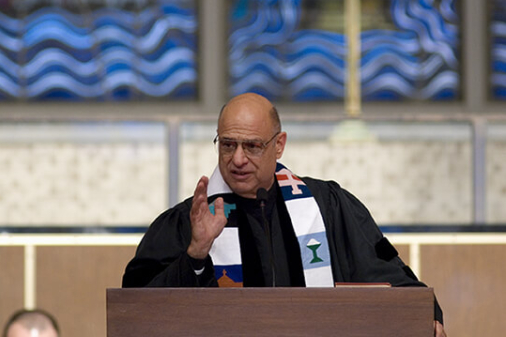
Baptist minister and Professor of Sociology Tony Campolo has often defined evangelical as having three key aspects. Firstly a high view of scripture; secondly, adherence to the Apostles Creed and thirdly an emphasis on the importance of a personal relationship with Jesus. Yet Campolo himself now doesn't self-identify as evangelical. Instead he (and a growing number of others) call themselves Red Letter Christians, "We are evangelicals who are troubled by what is happening to poor people in America; who are disturbed over environmental policies that are contributing to global warming; who are dismayed over the increasing arrogance of power shown in our country's militarism..." Campolo has decided to move on from calling himself evangelical. But hundreds of millions of others around the world still cling to it.
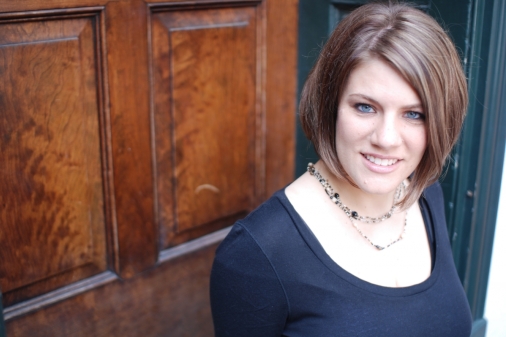
The likes of Campolo, Brian MacLaren, Steve Chalke, Rob Bell, Rachel Held Evans and others have found themselves adrift for their more liberal stance on a variety of issues such as homosexuality, biblical interpretation and the existence of hell. The rise of post-evangelicalism and even a return to more mainline denominations has marked the journey of many of these high profile figures who at one time would have sat comfortably with the label 'evangelical.'
Given how widely it is used, it's important that those of us who self-identify as 'evangelical' and those who use the word to describe a theological and/or political standpoint think carefully about what they mean.
Evangelical isn't primarily about the Republican Party, right wing politics, or even important social issues. Evangelical, properly understood, is about the centrality of our faith to our lives, the centrality of Jesus to that faith the the centrality of his life, death and resurrection to our understanding of God. It's about the radical lives we're called to live as a result of that reality.
The media will always misunderstand and distort, and opportunists like Trump will always crave our fealty. The whole point of being an evangelical is that politicians, pastors, preachers and prophets don't get to claim that allegiance. Our allegiance is to Jesus. Whatever else our difference, that should be something we can unite around.







